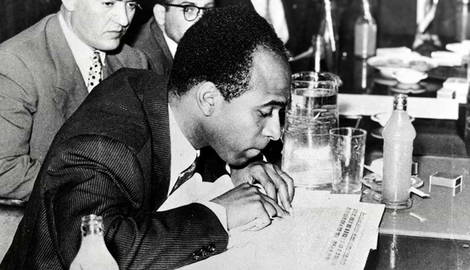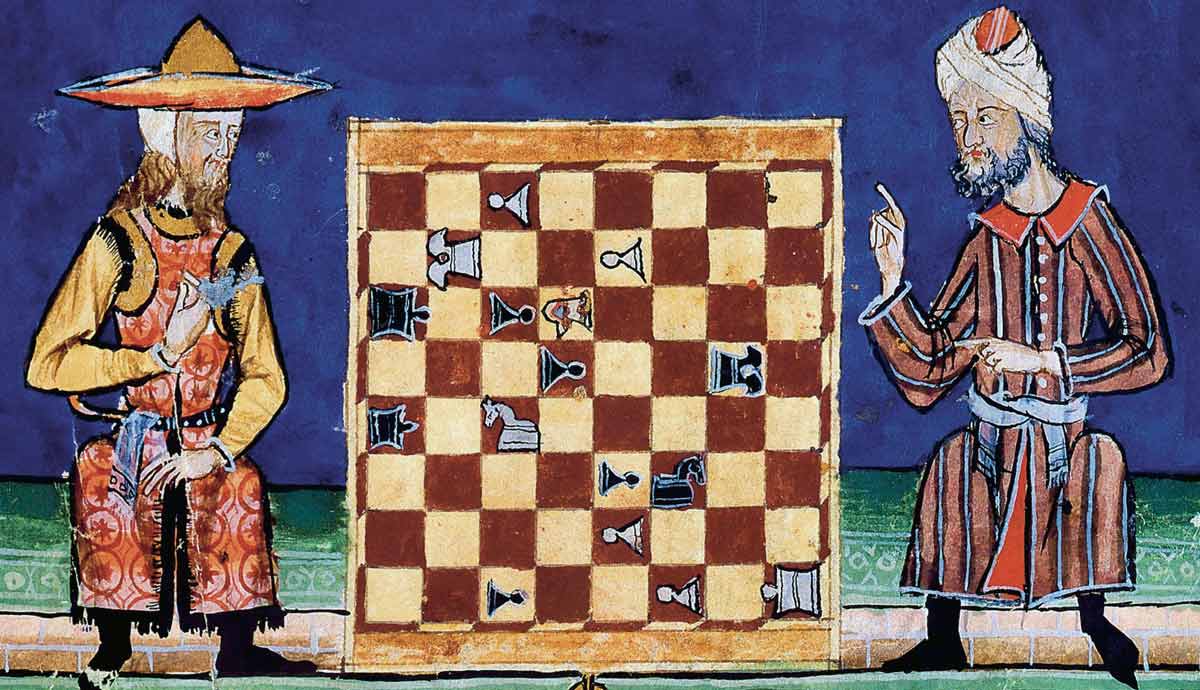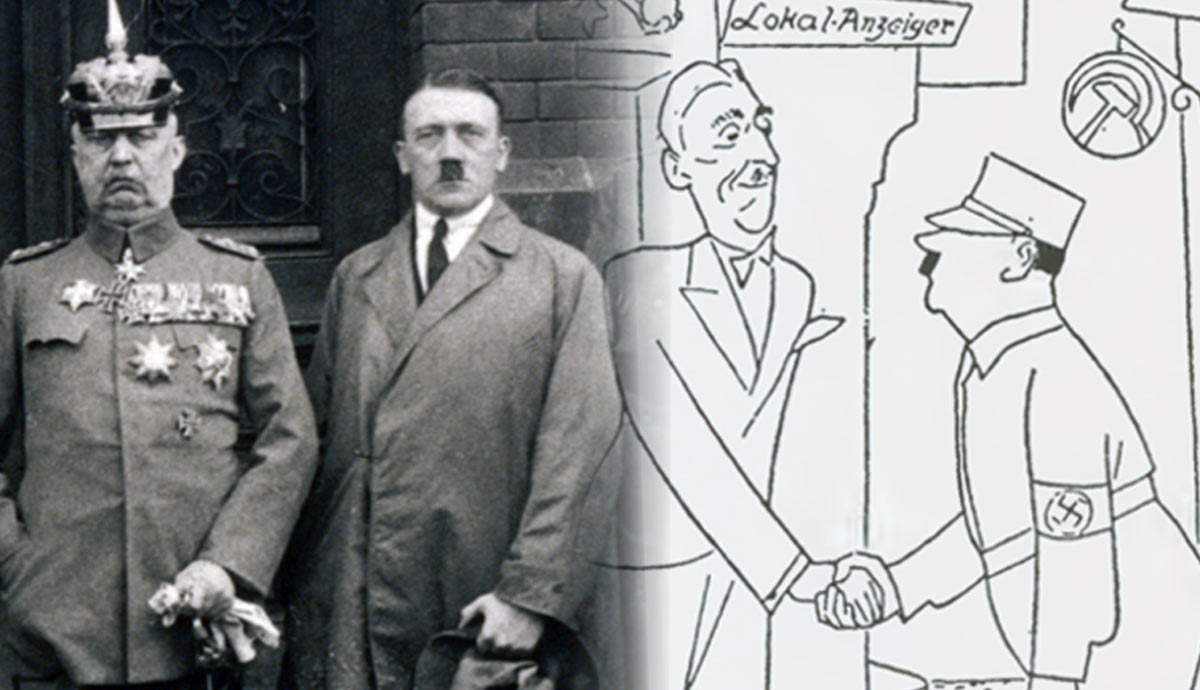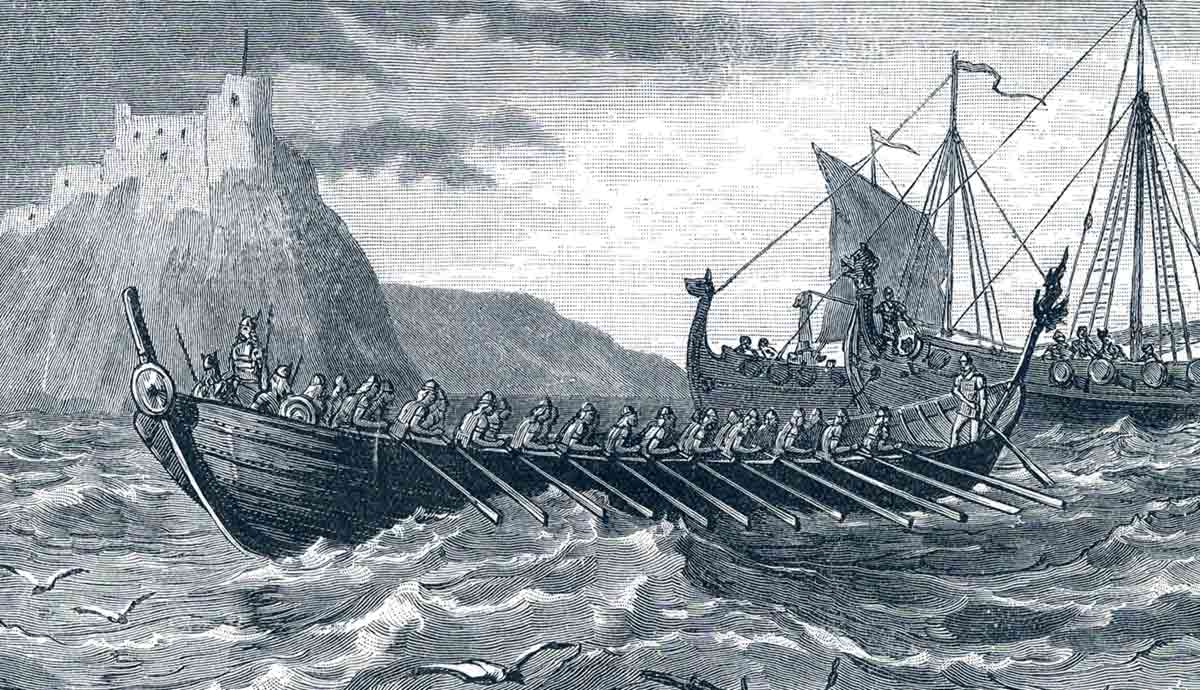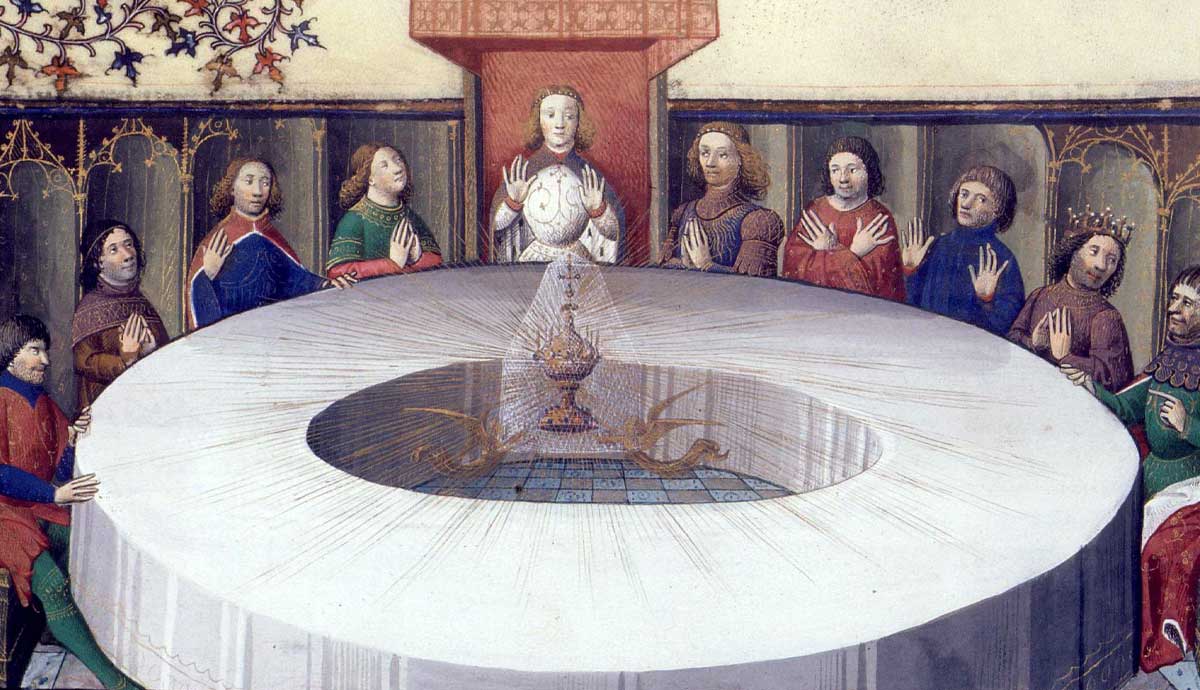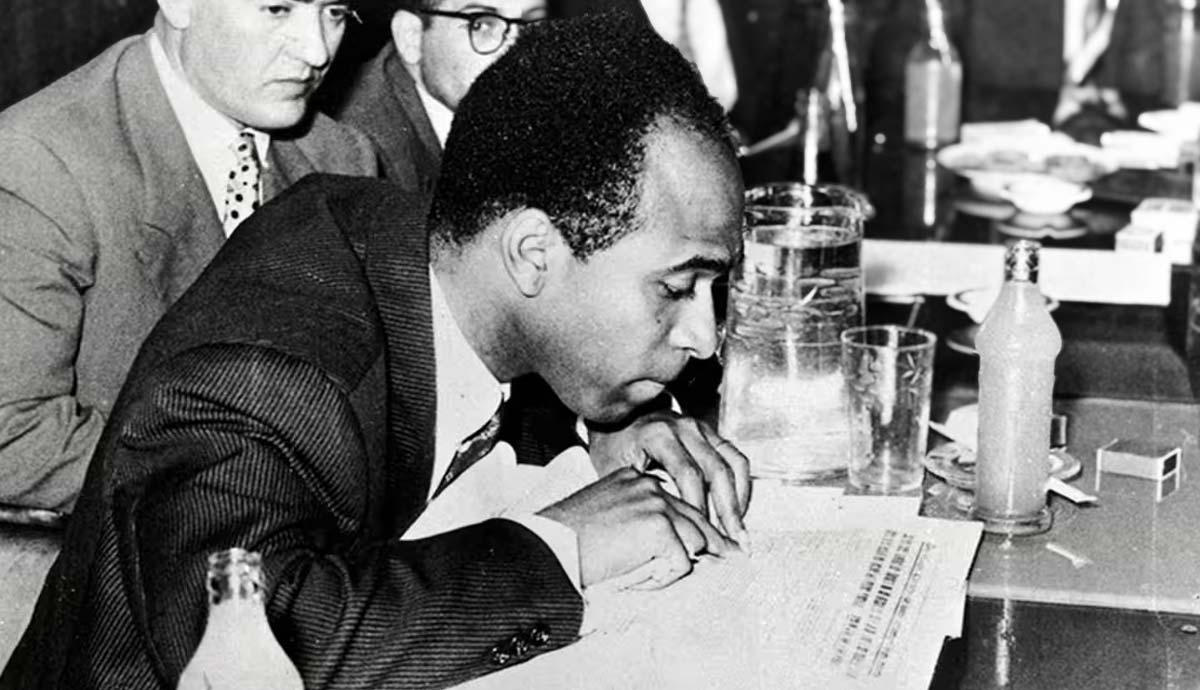
In 1954, as French colonial forces normalized mass killings and torture in Algeria, Frantz Fanon served as the director of a psychiatric hospital near Algiers. His books, Black Skin, White Masks (1952) and The Wretched of the Earth (1961), forged in the heat of anti-colonial struggle, have become modern classics of political theory. Today Fanon is regarded as one of the most influential revolutionary thinkers of the twentieth century. Although his writings are well-regarded in academic circles, his revolutionary vision was deeply personal and shaped by his experiences as a participant in the Algerian liberation struggle.
Early Life and Education

Frantz Fanon (1925-1961) was born into a middle-class family in Fort-de-France in the French Caribbean colony of Martinique. Educated by the writer and poet, Aimé Césaire, Fanon excelled at school. He claimed that the first three words he was taught to spell at school were “Je suis Francais” (I am French).
During the Second World War, he fought with the Free French Forces. Before he became a revolutionary he trained as a psychiatrist in Lyon, France, graduating in 1951, before taking a post at a psychiatric hospital in Algeria. He joined the Algerian National Liberation Front (FLN) and remained dedicated to the cause until his death.
Fanon remained optimistic that the victims of Western colonialism, whom he called “the wretched of the earth”, would achieve freedom both from the material brutality of colonial rule, but also fom the “colonization of the mind”. He died of complications of Leukemia (pneumonia) at 36 years old.
Black Skin, White Masks

In Black Skin, White Masks (1952), Fanon recounts a humiliating experience from his time in Lyon, when a white French boy on a train was sufficiently startled by his appearance to alert his mother to the presence of a “nègre” in the carriage.
The incident shattered Fanon’s self-perception of himself as a French man of color, revealing instead that he was seen as black, dangerous, and “other.” Black Skin, White Masks reveals the shadow that colonial racism casts over the lives of subjects, natives, and above all, “black” people.
The book explores how colonial racism leaves black people with feelings of inferiority, self-hatred, and cultural marginalization in the context of a Western popular culture that equates purity and good with whiteness and blackness with impurity and evil.
Fanon in Algeria

According to Adam Shatz, Fanon arrived in Mali in 1960 on a fake passport before making his way with his comrades to Algeria. His mission aimed to open a window on the country’s southern border with Mali, to move guns and ammunition to the rebels of the Algerian National Liberation Front (FLN).
Fanon had been in Algeria between 1953 and 1957 until he was expelled for giving sanctuary and treatment to FLN rebels at his psychiatric hospital. He treated both Algerian torture victims and the French officers and soldiers who carried out the torture.
While in exile in Tunisia Fanon joined the FLN. His famous defense of the right of colonized people to use violence against the oppressor derived in large part from his experiences. Drawing directly from his experience with the FLN, in The Wretched of The Earth (1961), he proposed that armed struggle against the oppressor was not just a reaction to colonial violence, but a type of psychological medicine.
The Wretched of the Earth

The Wretched of the Earth, Fanon’s most famous work, provides a psychosocial analysis of the dehumanizing effects of colonization on the individual, and its collective impact on the nation. The psychological case studies of the book, detailing the psychological impact of racism and the sheer brutality of colonialism were collected firsthand.
Written during the final stages of the Algerian revolution, Fanon noted that ‘decolonization, which sets out to change the order of the world, is, obviously, a programme of complete disorder.’ In the book’s first and most famous chapter – ‘On Violence’ – Fanon speaks of the practical and psychological need for violence against colonialism.
He argued that the violent racism of colonialism not only impoverishes the colonized but dehumanizes them in equal measure. Decolonization was the first step towards the birth of a new world where both the colonizer and the colonized would finally be free.
